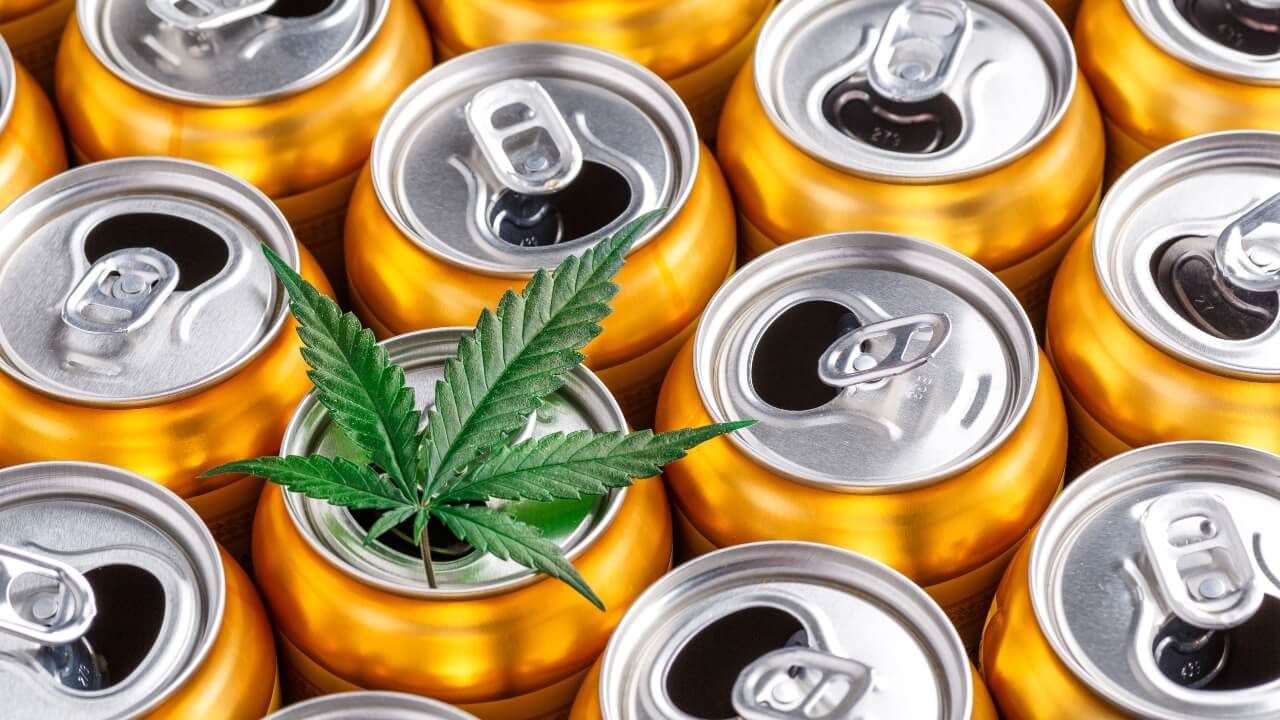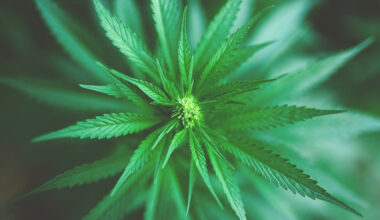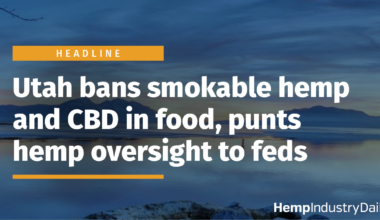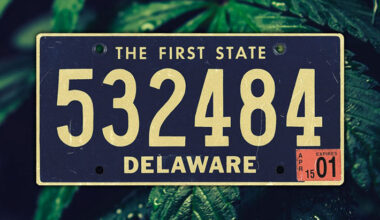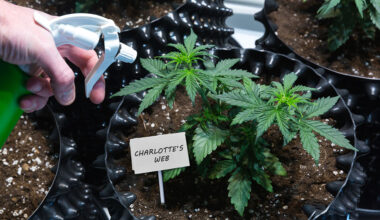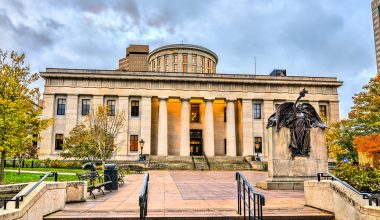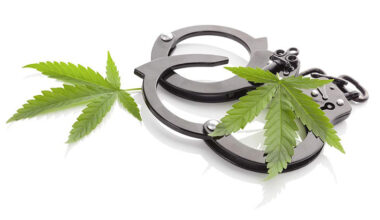As more consumers shift away from alcohol, craft brewers seeking new avenues for growth are venturing into producing hemp-derived THC beverages.
For many craft brewers, the move into THC-infused drinks is a logical extension of their expertise.
“Alcohol has slowed down a lot, especially beer,” said Jacob Virgil, president of Charlotte, North Carolina-based NoDa Brewing Co.
“Consumer trends and habits – people are shifting to nonalcoholic.”
The no-alcohol beverage market is expected to grow by 7% through 2028, according to IWSR, a London-headquartered global-drinks data provider.
According to Gallup, 62% of adults younger than 35 say they drink, down from 72% two decades ago.
While beer remains NoDa’s core business, the brewery has created nonalcoholic beverages to satisfy consumer preferences.
Instead of developing a nonalcoholic beer, NoDa launched a hop water, Hop20.
And the brewer’s most recent nonalcoholic offering is hemp-derived THC seltzers under the brand Happy Bird.
Happy Bird, which emphasizes wellness, comes in three flavors:
- Grapefruit hibiscus with 10 milligrams of THC.
- Lavender lemon with 5 milligrams of THC.
- Ginger lime with 5 milligrams of THC.
Learning the industry
Jason Pickle, whose Volunteer Botanicals supplies water-soluble emulsions of cannabinoids, has witnessed the trend firsthand.
The Tennessee-based company recently launched its Beverage Accelerator Program, which provides brewers, distillers and other beverage manufacturers with the resources and information they need to develop, produce and distribute new nonalcoholic beverages in as little as three months.
“Within the last six months, I’ve seen as many or more customers coming out of alcohol than hemp,” Pickle said.
Established craft breweries are looking to diversify their product lines now that beer and liquor distributors are carrying THC beverages.
“The foundation is hemp companies – they paved the way,” Pickle said.
“Now that this is becoming more mainstream, those people want to get in because they can without jeopardizing their licenses.”
It’s also easier to convince distributors to carry THC beverages than it is to get them to take on a new beer product because of lackluster sales.
Beyond diversification, the economics of THC beverages are attractive. Pickle highlights the contrast in production timelines.
“It takes 14 to 60 days to brew a beer,” he said. “You can make a THC-infused beverage in six hours.”
The rapid turnaround, coupled with potentially higher margins and a direct-to-consumer model in some states, presents a compelling financial opportunity.
Beer industry margins are thin, while THC beverages are made with lower-cost ingredients and have a quicker inventory cycle.
Subscribe to the MJBiz Factbook
Exclusive industry data and analysis to help you make informed business decisions and avoid costly missteps. All the facts, none of the hype.
What you will get:
- Monthly and quarterly updates, with new data & insights
- Financial forecasts + capital investment trends
- State-by-state guide to regulations, taxes & market opportunities
- Annual survey of cannabis businesses
- Consumer insights
- And more!
Co-packing model
Daniel Meehan of New River Distilling, a Boone, North Carolina-headquartered co-packer that manages numerous hemp-derived THC brands, said there’s growing demand for breweries to co-pack for others, creating a “multifunctional income stream.”
“When brewers see it and run a few runs and see how simple it is, the math really starts adding up,” Meehan said.
Despite the enthusiasm, the regulatory landscape remains a significant hurdle that Meehan describes as “quite treacherous.”
Each state has different rules regarding milligrams and allowable ingredients. The patchwork of regulations can be challenging for brands that want to expand across state lines.
One of the biggest benefits of the hemp-derived THC beverage trend is the ability to reach a different demographic.
The low-dose format appeals to a broader audience, including health-conscious consumers and younger generations who might consume less or no alcohol.
Virgil of NoDa Brewing said the target demographic for Happy Bird beverages is health-conscious women and younger people looking for an alternative to alcohol.
Happy Bird competes with beer at the retailers where it’s sold, but Virgil said it doesn’t cannibalize the NoDa brand in the brewery’s taproom.
“People who weren’t going to get anything will get this,” he said. “People who were going to get beer will also get this.”
Margaret Jackson can be reached at margaret.jackson@mjbizdaily.com.
Medical Disclaimer:
The information provided in these blog posts is intended for general informational and educational purposes only. It is not a substitute for professional medical advice, diagnosis, or treatment. Always seek the advice of your physician or other qualified healthcare provider with any questions you may have regarding a medical condition. The use of any information provided in these blog posts is solely at your own risk. The authors and the website do not recommend or endorse any specific products, treatments, or procedures mentioned. Reliance on any information in these blog posts is solely at your own discretion.
